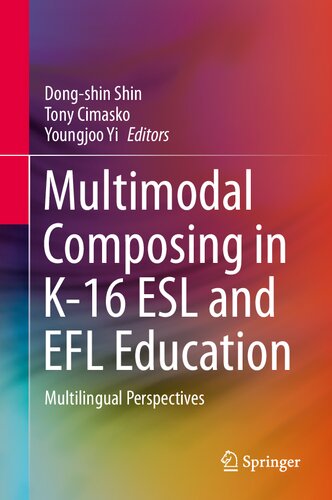

Most ebook files are in PDF format, so you can easily read them using various software such as Foxit Reader or directly on the Google Chrome browser.
Some ebook files are released by publishers in other formats such as .awz, .mobi, .epub, .fb2, etc. You may need to install specific software to read these formats on mobile/PC, such as Calibre.
Please read the tutorial at this link: https://ebookbell.com/faq
We offer FREE conversion to the popular formats you request; however, this may take some time. Therefore, right after payment, please email us, and we will try to provide the service as quickly as possible.
For some exceptional file formats or broken links (if any), please refrain from opening any disputes. Instead, email us first, and we will try to assist within a maximum of 6 hours.
EbookBell Team

4.8
24 reviewsThis book offers a comprehensive view of multimodal composing and literacies in multilingual contexts for ESL and EFL education in United States of America and globally. It illustrates the current state of multimodal composing and literacies, with an emphasis on English learners' language and literacy development.
The book addresses issues concerning multilinguals' multimodal composing and reflects on what the nexus of multimodality, writing development, and multilingual education entails for future research. It provides research-driven and practice-oriented perspectives of multilinguals' multimodal composing, drawing on empirical data from classroom contexts to elucidate aspects of multimodal composing from a range of theoretical perspectives such as multiliteracies, systemic functional linguistics, and social semiotics.
This book bridges the gap among theory, research, and practice in TESOL and applied linguistics. It serves as a useful resource for scholars and teacher educators in the areas of applied linguistics, second language studies, TESOL, and language education.